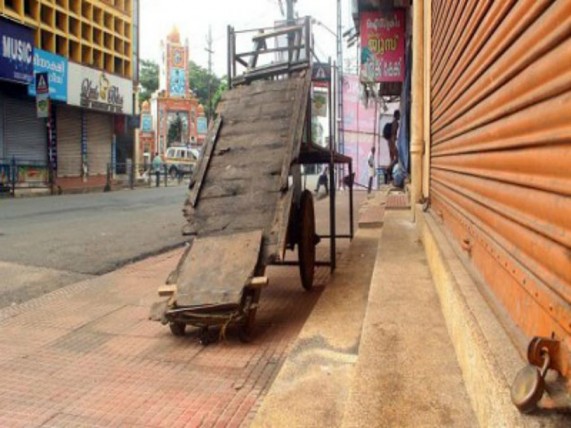Kerala Government steps in to control hartals by law: But is it just a bravado?
God’s Own Country has earned notoriety as `Hartal Pradesh’ (Land of Hartals) with one party or the other calling for a shutdown at the slightest provocation. There is no other state in India that witnesses 100 to 150 hartals a year.
Till recently, hartal was known by its earlier nomenclature–bandh. But after the Kerala High Court banned bandh, it resurfaced in the present form of hartal, which is nothing but a bandh in disguise. Be it bandh or hartal, it means total paralysis of normal life and industrial activities.
Industries and public establishments in Kerala lose substantial number of man days and the public exchequer suffers huge losses on account of hartals. It throws the tourism industry out of gear. Even potential investors fear to put money in Kerala due to its bad reputation for frequent stoppages of works on account of hartals.

Kerala was the first state to have a court ban on bandh. In 1997, Kerala High Court, in a far reaching verdict, had declared bandh as “illegal and unconstitutional”. Significantly, the court also held that organisers of the bandhs are liable to compensate the Government, the public and private citizens for any losses they suffer on account of destruction of property during the bandhs.
But the ban didn’t have any effect on the ground, except that the organisers replaced the word `bandh’ with `hartal’. Hartals paralysed the state with the same frequency and vehemence as bandhs did. According to the Government’s estimate, a hartal causes nearly Rs1,000 crore loss to the state.
There is also a hilarious side to the hartals in Kerala. The entire state switches to a celebration mode on the hartal day. Long queues of people can be seen in front of liquor outlets on the hartal eve to replenish their stock for the hartal day revelry. Sales at fish and poultry outlets too peak on the hartal eve.

The Government has received a large number of complaints from different quarters about problems faced during hartal days. The Kerala High Court has also suggested ways to check hartal. In view of rising public resentment against hartals, the Congress-led UDF government in Kerala is contemplating to bring in a legislation to control holding of hartals in the state.
The bill titled ‘Hartal Control Act’ envisages to implement a series of steps to check the shutdown call given by different outfits including political parties, with a view to avoiding the difficulties faced by general public on account of hartals. The bill, proposed to be moved in the next session of the state Assembly, will have a provision that provides the Government the right to ban a hartal if it feels that there would be violence on that day.
“The Bill would make it mandatory to inform the public at least three days in advance about a hartal. Forcing shops to down shutters and intimidating citizens would be criminal offenses inviting imprisonment up to six months and/or fine up to Rs.10,000 under the new law.
The police would be required to make arrangements for safe travel and officials would face action for failure to do so,” says state Home Minister Ramesh Chennithala in a Facebook post. He has sought suggestions and recommendations on the subject from all sections in the society, including political, social and cultural leaders.

The Minister’s Facebook post has received huge support on the social media platform. The response shows people are fed up with frequent shutdowns that Kerala experiences, the Minister says.
But the moot question is: Will the proposed anti-hartal bill end up the way High Court ban on bandh did? As past experiences shows, what the state lacks is strong political will, followed by effective action, to curb hartals that virtually hold the state to ransom.
Also read:
Kerala drinks merrily despite closure of bars: Star hotels give way to ‘family bars’
Here’s why politicians and union leaders fear the fiery female workers of Munnar plantations

OMG-inducing, share-compelling, like-attracting, clutter-breaking, thought-provoking, myth-busting content from the country’s leading content curators. read on...
